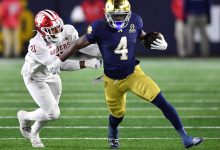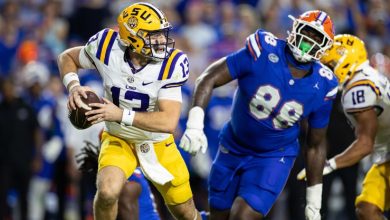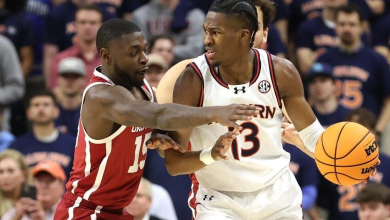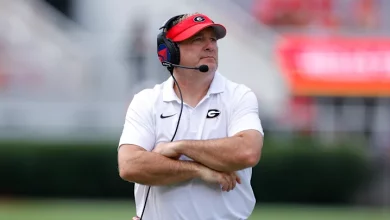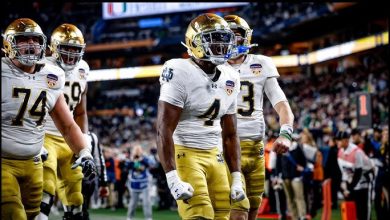Tennessee basketball’s Zakai Zeigler has filed a lawsuit in Knoxville seeking a fifth year of eligibility, aiming to extend his college career with the Vols after injury-shortened seasons.
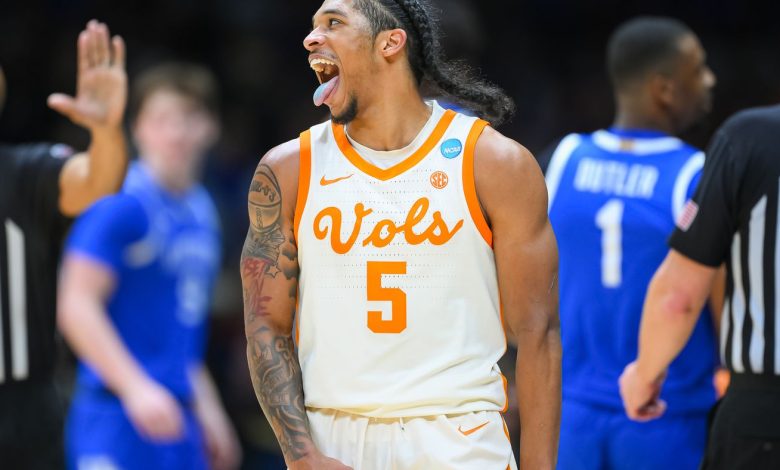
In a move that could spark widespread conversation across the college basketball world, Tennessee point guard Zakai Zeigler has filed a lawsuit in Knox County Court seeking a fifth year of NCAA eligibility. The decision marks a significant development not only in Zeigler’s career, but also in the evolving legal landscape surrounding college athletics, eligibility rules, and the rights of student-athletes in the name-image-likeness (NIL) era.
The lawsuit, filed Tuesday afternoon, argues that Zeigler’s college career has been impacted by injury and unprecedented circumstances that merit an additional year of eligibility. If successful, the case could set a precedent for how the NCAA handles eligibility waivers moving forward—especially for players whose time in college has been shaped by disruption and adversity.
Zeigler, one of the most dynamic and beloved players in recent Tennessee basketball history, is fighting not just for one more season in orange and white, but for the right to finish his college story on his own terms.
A Point Guard, A Leader, A Fighter
Since arriving in Knoxville as an undersized but ultra-competitive recruit, Zakai Zeigler has built a reputation as one of the SEC’s toughest floor generals. Listed at just 5-foot-9, Zeigler plays with a heart that belies his stature. His quickness, court vision, and fearless defense have made him a fan favorite at Thompson-Boling Arena, and his leadership has been instrumental in Tennessee’s success over the past several seasons.
But Zeigler’s career hasn’t been without setbacks. Most notably, he suffered a torn ACL in February 2023 that ended his sophomore season prematurely. While he made a remarkable return the following season, lingering physical limitations and restricted minutes have arguably limited his ability to fully showcase his potential.
His attorneys point to this injury—and the subsequent rehabilitation period—as a core justification for why he deserves a medical redshirt and a fifth year of eligibility.
“Mr. Zeigler’s collegiate career has been undeniably disrupted by significant injury,” the lawsuit reads. “He has not had a full and fair opportunity to participate in four complete NCAA basketball seasons and seeks equitable relief to continue his education and athletic career.”
The Legal Argument: More Than Just a Waiver
Typically, student-athletes seeking a fifth year of eligibility file a request directly with the NCAA, asking for a waiver under the organization’s existing guidelines. In many cases, athletes receive a medical redshirt if they can demonstrate that injury prevented them from participating in more than 30 percent of their team’s season.
Zeigler’s case, however, goes beyond a routine waiver request. According to the complaint, the NCAA has been unresponsive and unclear about how his situation fits into their current framework. His legal team argues that the NCAA’s criteria are inconsistently applied and have become increasingly opaque since the COVID-19 pandemic and NIL regulations reshaped college athletics.
Attorney Mark Cunningham, who is representing Zeigler, said the suit is not intended to attack the NCAA, but rather to hold it accountable.
“We believe Zakai’s situation meets the standards for an additional year, but the NCAA has failed to offer a fair, transparent process,” Cunningham said in a press conference. “This lawsuit simply asks the court to ensure that student-athletes are treated justly and given the chance to finish what they started.”
The lawsuit names both the NCAA and the University of Tennessee as respondents, although the school has issued a statement indicating that it supports Zeigler’s pursuit of eligibility and is cooperating fully with the legal proceedings.
Support from the Tennessee Basketball Community
The reaction from the Tennessee basketball community has been swift and overwhelmingly supportive. Head coach Rick Barnes praised Zeigler for his character, work ethic, and resilience, calling him “the heartbeat of our team.”
“Zakai is the kind of young man every coach wants in their program,” Barnes said. “He’s been through a lot, and he’s handled it all with humility and determination. If anyone deserves the chance to play one more season, it’s him.”
Current and former teammates have also rallied around Zeigler. Social media posts under the hashtag #OneMoreYearForZakai began trending regionally within hours of the news breaking, with fans sharing highlights, photos, and personal messages of support.
“I’ve never seen a player give more of himself to this program,” said former Vols forward Grant Williams. “Zakai has earned the right to finish strong. Let the man hoop.”
NCAA Eligibility: A System in Flux
Zeigler’s lawsuit comes at a time when the NCAA is facing increased scrutiny and pressure to adapt its policies to a new era of college sports. With NIL deals now commonplace and athletes transferring between schools more freely than ever before, the question of what constitutes “fair eligibility” has become more complicated.
Experts say Zeigler’s case could become a test for how the NCAA treats injuries and disruptions outside a player’s control.
“There’s no doubt that the NCAA is dealing with eligibility challenges on a scale it’s never seen,” said Dr. Rachel Harmon, a sports law professor at the University of Michigan. “But that doesn’t absolve them from the responsibility of being transparent and consistent. Lawsuits like Zeigler’s highlight the need for reform.”
Critics argue that the NCAA’s decision-making process on waivers is too arbitrary and lacks accountability. Some athletes are granted extra years of eligibility with little controversy, while others are denied with minimal explanation.
“Fans see the outcomes but not the process,” Harmon added. “Cases like this shine a light on that process, or lack thereof.”
What a Fifth Year Could Mean for Tennessee
If Zeigler is granted a fifth year, the impact on Tennessee basketball could be significant. While the Vols have a strong incoming recruiting class and returning talent, Zeigler’s experience, leadership, and defensive tenacity would be an invaluable asset to the 2025–26 squad.
The program is also hoping to build on recent tournament success, with aspirations of making a Final Four run after years of knocking on the door. Zeigler, who has already been to multiple NCAA Tournaments and battled through the gauntlet of SEC play, would provide the steady hand needed to guide a young and hungry roster.
“You can’t teach what Zakai brings to the court,” said Tennessee assistant coach Justin Gainey. “He controls the pace, gets under opponents’ skin, and makes winning plays. More than that, the younger guys look up to him.”
The Bigger Picture: Players Fighting for Their Rights
Zeigler’s case is not just about one athlete or one program. It’s part of a broader shift in the landscape of college athletics, where players are increasingly willing to challenge institutions and stand up for their rights. Whether through NIL deals, transfer freedoms, or legal action, student-athletes today are more empowered than ever.
For Zeigler, the lawsuit is about principle as much as it is about opportunity.
“I’ve given everything to this game and to this school,” he said in a statement. “All I’m asking for is a chance to finish what I started. This isn’t about special treatment—it’s about fairness.”
If successful, his case could become a blueprint for other athletes whose careers have been affected by injury or extraordinary circumstances. It could also pressure the NCAA to revise its waiver process, making it more transparent and equitable.
What Happens Next?
Legal analysts say the case could move quickly, given the NCAA’s looming eligibility deadlines and the urgency of roster planning for the 2025–26 season. A hearing is expected within the next 30 to 45 days, and both sides have signaled a willingness to resolve the matter expeditiously.
If the court rules in Zeigler’s favor—or if the NCAA grants eligibility as a result of the legal pressure—he could rejoin the team as early as summer workouts. If denied, Zeigler’s college career would end, potentially sending him into professional basketball overseas or in the G League.
For now, Tennessee fans and college basketball followers nationwide are watching closely, hoping that one of the sport’s most inspiring players gets one last shot to leave his mark.
A Legacy Still Being Written
Zakai Zeigler’s story is one of perseverance, passion, and leadership. From his rise as an overlooked recruit to his resilience through injury, he has come to symbolize everything good about college basketball. Now, as he takes a stand for himself and possibly others, his journey has entered a new chapter.
Whether or not the court grants his request, one thing is certain: Zakai Zeigler has already earned his place in Tennessee basketball history. And if he gets one more year, you can bet he’ll make the most of it.
Let me know if you’d like this formatted for publication, adapted into a press release, or turned into a podcast or social media summary.

